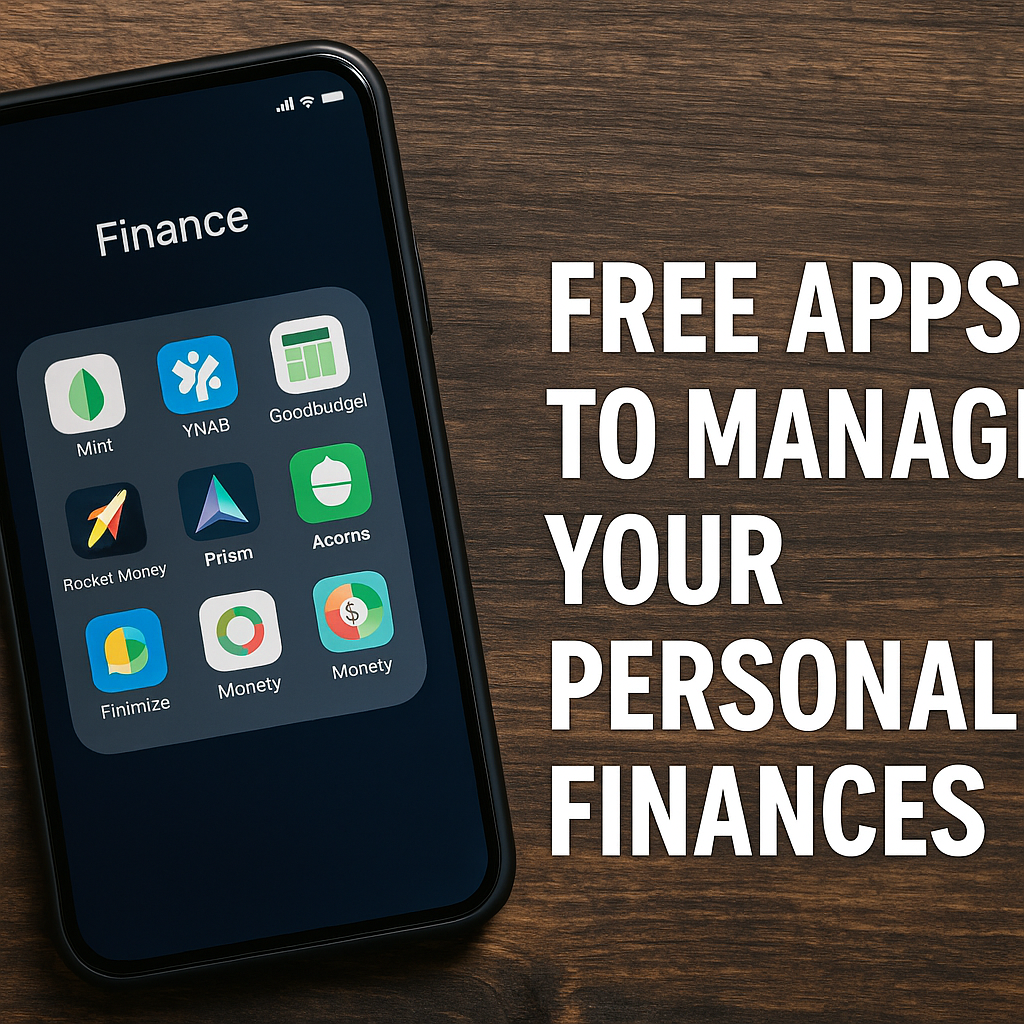Managing your personal finances doesn’t have to be difficult or expensive. With the rise of free mobile apps, organizing your money has become easier than ever. Whether you’re budgeting, saving, tracking your expenses, or starting to invest, there are excellent tools designed for beginners that help you build healthy financial habits — all from your smartphone.
Why Use a Finance App?
Finance apps offer convenience, automation, and real-time insights. They help you make informed decisions, reduce unnecessary spending, and stay on top of your financial goals. Most importantly, they do this in a way that fits seamlessly into your daily routine. Many apps also offer reminders, reports, and syncing options so you can manage everything in one place.
Best Free Budgeting and Expense Tracking Apps
Mint
Mint is one of the most popular free finance apps for good reason. It connects to your bank accounts, categorizes your transactions automatically, tracks spending, and even monitors your credit score. You can set spending limits for different categories and get alerts when you’re close to overspending.
PocketGuard
PocketGuard helps you avoid overspending by showing exactly how much disposable income you have after accounting for bills, goals, and necessities. It’s ideal if you want a quick snapshot of what’s “safe to spend” at any given moment.
Goodbudget
Based on the envelope budgeting method, Goodbudget allows you to divide your income into digital envelopes for different spending categories. It doesn’t connect to your bank, so it’s perfect if you prefer manual entry for better control and awareness.
Monefy
Monefy is great for people who want a fast, minimal, and user-friendly experience. It allows manual expense entry, quick category selection, and simple charts to view where your money is going without needing to link accounts.
Best Free Apps for Bill Management and Subscription Tracking
Rocket Money (formerly Truebill)
Rocket Money identifies all your subscriptions, tracks upcoming bills, and notifies you of price increases. It’s particularly helpful if you tend to forget about recurring charges. The app also helps negotiate lower bills, although this feature may have additional costs.
Prism
Prism consolidates all your bills and account balances into one place. It allows you to see due dates, amounts, and even pay your bills directly from the app. With colorful visuals and calendar views, it makes bill management easy and stress-free.
Apps to Kickstart Saving and Investing
Acorns (Lite version)
Acorns automatically rounds up your purchases and invests the spare change into diversified portfolios. While the full version has a subscription fee, the lite plan gives beginners a feel for investing with very little effort or risk.
Qapital
Though it offers more features in its paid plans, Qapital’s free version lets you automate savings using creative “rules.” For example, you can round up purchases or save a set amount every time you buy coffee. It gamifies saving, making it more fun and consistent.
Apps for Financial Education and Awareness
Finimize
Finimize delivers financial news and market insights in a clear, jargon-free format. With short daily reads and audio options, it’s perfect for busy users who want to stay informed about the financial world.
MyMoney by OECD
This app is designed to improve your understanding of basic financial concepts, such as budgeting, saving, credit, and insurance. It’s a great educational tool that’s non-commercial and ideal for people of all ages.
How to Choose the Right App for You
Choosing the right finance app depends on your personal goals and habits. Consider whether you prefer manual or automatic tracking, how important visual reports are to you, and whether you’re focused more on budgeting, saving, investing, or education. Look for apps that:
- Have a user-friendly interface
- Offer good customer reviews
- Are secure and protect your data
- Match your current financial needs
- Encourage you to check in regularly
Build Habits, Not Just Data
The best apps in the world won’t help if you don’t use them consistently. Choose one or two apps that resonate with you and commit to using them for 30 days. Set small goals, like tracking all expenses or saving $10 per week, and let the app guide you. Over time, these daily check-ins build strong habits that lead to long-term financial stability.
You don’t need to master every aspect of money overnight. These free tools make the process simpler, more engaging, and — most importantly — sustainable.
